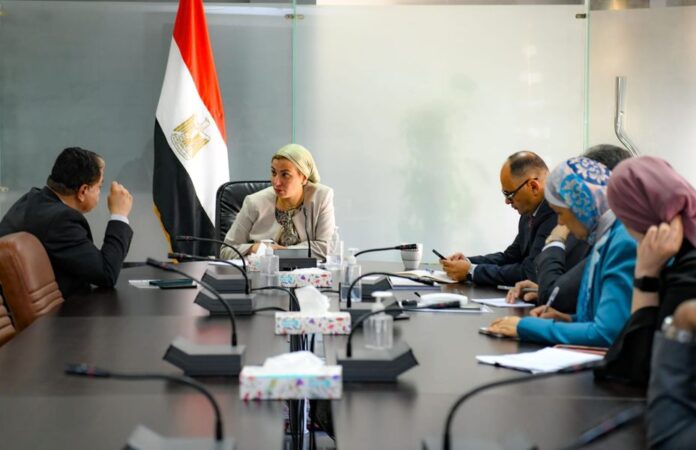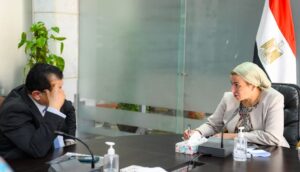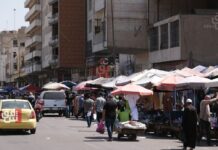
Egypt: The Minister of the Environment, Yasmin Fouad, continues high-level meetings with the members of the House of Representatives to research mechanisms for addressing the environmental challenges that their constituents face in Egypt.
On her part, Minister Yasmin Fouad stated that the current regulatory and legal situation of the Waste Management System boosts the waste recycling industry in Egypt.
She emphasized that the Ministry of the Environment highlights investment opportunities in agricultural waste recycling as one of the promising environmental investment areas.

According to the reports, Yasmin Fouad, the Minister of the Environment, received several House of Representatives members in the framework of her diligence to always communicate with deputies to identify the problems faced by their constituencies and to work on finding solutions to them.
The meeting was held in the presence of Ali Abu Sunna, Head of the Environmental Affairs Department, and Tariq Al-Arabi, Head of the Waste Management Department, and several other leaders of the Ministry.
In addition, Environment Minister Yasmin Fouad met with the deputy Youssef Al-Sawi, a member of the House of Representatives from the Fayoum District, to discuss mechanisms for solving a problem that affects a number of the owners of agricultural reserves located in the vicinity of the Rayyan Valley Reserve and put forth appropriate solutions to facilitate them without violating the necessary measures to protect the reserve.
While stressing the issues, Minister Fouad clarified that the Ministry always seeks to solve these problems by paying with a problem-neutral technical committee of experts and professors at the universities specializing in maintaining protected environmentally sensitive areas.
She stated whether these areas fall within the scope of those areas or not, and based on the committee’s recommendations, the appropriate decision will be taken after the order of the prime minister.
In this context, she also met with MP Nashwa El-Dib, a member of the Parliament of Giza and an investor in poultry waste recycling, to explore the challenges facing the poultry waste recycling and feed manufacturing industry.
Egypt has three factories licensed to operate in this field, which are among the important sectors to benefit from this waste, which reflects positively on the Egyptian economy.
On his part, Ali Abu Sunna, Head of the Environmental Affairs Department, indicated that various projects and facilities, whether industrial, commercial or tourism, cannot operate without obtaining environmental approval after the Environmental Impact Assessment Study of the project to ensure that the activities and projects undertaken do not affect the environment by adhering to environmental conditions and standards.
Environment Minister said that promoting the waste management-based industry in Egypt requires awareness of the current situation of the waste management system in Egypt, where a law to regulate waste management was issued in 2020.
The reports also outlined that Minister Yasmin Fouad also met with MP Mohamed Hamda Desouqi, the representative of the Proposals and Complaints Committee of the House of Representatives and the Deputy of Assiut District.
They discussed ways to enhance the utilization of agricultural waste, especially in Egypt, reduce burning disposal, and achieve economic benefit by turning it into products such as alternative fuels, fertilizers and condensing.
Tariq Al-Arabi, head of the Waste Management Organization, has explained that the thermal formula for cotton and corn has been analyzed through cement factories.
It is suitable as an alternative fuel, which will achieve a great environmental and economic advantage by providing a new source of alternative fuels in those factories and reducing reliance on coal.
It also saves A rewarding financial return to the farmer from selling this waste after preparing it with farm and cabbage.
The environment minister has pointed out the Ministry’s interest in finding promising opportunities to invest in agricultural waste recycling, which has recently entered into control of the black cloud by allowing farmers to invest in capsicum and rice straw recycling.
It was also stated that a factory has also been set up in Sohag to produce timber from fine corn waste and a factory to produce cartons from banana waste, the minister said.
In coordination with the ministries of agriculture and local development, carry out field experiments in several villages to farm and promote agricultural waste among farmers and encourage them to adopt it.


